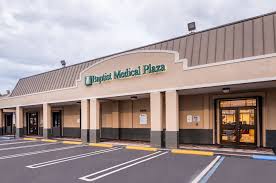From Innocence to RN: The NC Nursing License Journey Explained
If you’ve ever wondered how to transition from a hopeful nursing student to a fully licensed professional in North Carolina, you’re not alone. Understanding the north carolina nursing license process can feel like stepping into a world of forms, applications, and exams that test not just your knowledge but your patience. Whether you’re just starting your nursing education or trying to reclaim a license, navigating the process can feel like a rite of passage—and, let’s be honest, a test of endurance.
In this article, we’ll break down the north carolina nursing license journey in a clear, step-by-step guide. We’ll also sprinkle in some light-hearted analogies to help you survive this “purity test” of professional life. By the end, you’ll have a comprehensive view of how to earn, maintain, or even recover your nursing credentials in North Carolina.
Understanding the NC Nursing License
A north carolina nursing license is the official authorization granted by the North Carolina Board of Nursing (NCBON) that allows you to legally practice as a nurse within the state. There are multiple types of nursing licenses, including:
- Registered Nurse (RN)
- Licensed Practical Nurse (LPN)
- Advanced Practice Registered Nurse (APRN)
Each license type has specific eligibility requirements, educational prerequisites, and examination criteria. But one thing they share? You need to follow the steps carefully, or you risk delays, rejections, or even legal complications.
Step 1: Education – The “Purity” Stage
Your first stage in this journey is education. Think of it as the “innocent” stage of your nursing career, where you’re still untouched by the bureaucratic maze of licensing.
- LPN Programs: Typically last about a year and focus on foundational nursing skills.
- RN Programs: Can be a two-year Associate Degree in Nursing (ADN) or a four-year Bachelor of Science in Nursing (BSN).
- APRN Programs: Require graduate-level education, including a Master’s or Doctorate in Nursing Practice (DNP).
During this stage, focus on absorbing knowledge, honing clinical skills, and maintaining good academic standing. Remember, missing prerequisites or failing courses can delay your entry into the licensing process—so treat it like a purity test of your commitment and attention to detail.
Step 2: Application for NC Nursing License
Once your education is complete, it’s time to apply for your north carolina nursing license. This step can feel like being handed a giant rulebook, and yes—it’s easy to get lost in the paperwork.
Here’s a simplified breakdown:
- Complete the application form – The NCBON offers online and paper options.
- Submit official transcripts – Your nursing school will send these directly to the Board.
- Provide proof of citizenship or legal residency – Non-U.S. citizens may need additional documentation.
- Pay the application fee – Fees vary depending on the license type.
At this stage, attention to detail is critical. A missing signature or misfiled document can set your timeline back weeks—or even months.
Step 3: Background Check – The Life “Purity Test”
Much like the Rice Purity Test examines past behavior, the North Carolina Board of Nursing examines your background. This includes:
- Criminal history
- Disciplinary actions from other states
- Previous nursing license issues
Any red flags don’t automatically disqualify you, but they do require additional review. This is where transparency is your best friend. Attempting to hide past mistakes can backfire, while proactive disclosure may help smooth the path forward.
Step 4: NCLEX Exam – The Ultimate Challenge
Passing the NCLEX (National Council Licensure Examination) is your next milestone. This exam is designed to test your readiness for entry-level nursing practice.
- RN candidates: Take the NCLEX-RN
- LPN candidates: Take the NCLEX-PN
The test adapts to your responses, meaning you won’t see the same questions as another candidate. Preparation is key, and many aspiring nurses spend months reviewing clinical concepts, pharmacology, and patient care protocols.
Tip: Treat NCLEX prep like a mini-life quiz. The more scenarios and practice questions you complete, the better your “purity score” of preparedness.
Step 5: License Issuance and Activation
Once you pass the NCLEX and your background check is cleared, congratulations! You’re officially eligible for your north carolina nursing license. The Board will issue your license, which allows you to:
- Practice legally within North Carolina
- Apply for nursing positions in hospitals, clinics, or community care
- Pursue further specialization or advanced practice roles
Remember, your license is not eternal—it requires ongoing maintenance, including renewals and continuing education.
Step 6: Maintaining Your License
Think of this stage as the ongoing “purity upkeep” of your nursing career. North Carolina requires:
- Renewal every two years – Online renewal is common.
- Continuing Education (CE) Hours – The number varies by license type, but RNs generally need 30 hours over two years.
- Reporting of any legal or professional changes – New convictions or disciplinary actions must be reported promptly.
Failing to maintain your license can result in suspension, fines, or even permanent revocation.
Step 7: Reinstating a Revoked or Expired License
What happens if your north carolina nursing license lapses or is revoked? Don’t panic—reinstatement is possible, but it’s not automatic. The process usually involves:
- Filing a formal petition with the Board
- Providing evidence of rehabilitation or completed corrective measures
- Meeting current CE and practice requirements
- Possibly retaking the NCLEX
Many nurses successfully regain their licenses after careful compliance, proving that even a temporary setback doesn’t have to end your career.
For a detailed guide, you can check Can You Get Back a North Carolina Nursing License?.
Wrapping Up: From Innocence to RN
Earning a north carolina nursing license is a journey that combines education, exams, background scrutiny, and continued professional development. It’s a test of patience, dedication, and attention to detail—much like a real-life “purity test” for aspiring nurses.
Whether you’re just starting your studies, applying for the NCLEX, or considering reinstatement, understanding each step can make the process less daunting. Keep organized, stay transparent, and treat each stage as a milestone toward your ultimate goal: a rewarding career in nursing.
Your North Carolina nursing license isn’t just a credential—it’s the key to serving patients, advancing your career, and demonstrating your commitment to the healthcare profession.






